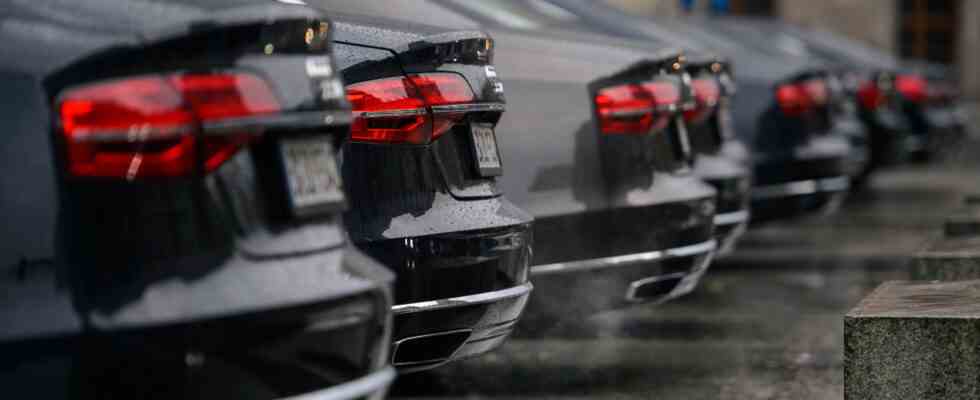Status: 08/26/2022 08:45 a.m
The taxation of company cars is currently the subject of heated debate. The Verkehrsclub Deutschland considers the current rules to be socially unfair and calls for their abolition. The FDP and the auto industry oppose it.
In the debate about the rules for the flat-rate taxation of company cars, the Verkehrsclub Deutschland has now also spoken out: “It is an enormous tax privilege that is ecologically and socially unfair,” said the association’s spokesman for transport policy, Michael Müller-Görnert dpa news agency. Above all, higher earners benefited from this. “A company car is much cheaper than buying it privately.”
According to Müller-Görnert, the so-called company car privilege should be completely abolished. Instead, there should be a mobility budget that enables employees to make business and private trips using the means of transport of their choice. This could include public transport such as buses and trains, but also car sharing, a bicycle or a taxi.
Lindner against higher taxes
The flat-rate taxation of company cars is currently controversial in the traffic light coalition. The Greens want to tie them more closely to the CO2 emissions of cars in order to set incentives for more climate-friendly transport and generate income for the state. Finance Minister and FDP leader Christian Lindner rejects that. He argues that the tax advantage of electric cars already has an impact on the climate.
Lindner also refers to studies and case law according to which the flat-rate taxation of company cars does not result in any tax advantages. It is primarily a tax simplification that saves users from having to keep a logbook. If the regulation were abolished, there would be no significant additional revenue for the state.
Better tax position for electric cars
If you also use your company car privately, you have what is known as a pecuniary advantage, which must be taxed. If you don’t want to keep a logbook, you can use the so-called one percent rule. One percent of the gross list price of the vehicle is used for each month. If you drive a company car with a list price of 50,000 euros, the monetary benefit is 500 euros per month. You then pay taxes on this amount.
Electric cars are taxed better: For pure electric vehicles that do not cost more than 60,000 euros, only 0.25 percent of the gross list price has to be applied. For more expensive electric cars and plug-in hybrids it is 0.5 percent. Companies can also deduct the purchase of company cars from their taxes.
Environmentally harmful subsidy?
The Federal Environment Agency sees the regulation as an environmentally harmful subsidy. According to an analysis, the actual monetary benefit is often higher than one percent. Especially since the refueling is often paid for by the employer. The tax breaks for company cars also reduce the incentive to use public transport, according to the Federal Environment Agency. In relation to 2018 and the regulation in force at the time, there was a subsidy of at least 3.1 billion euros.
The Greens would prefer to use this money to finance a cheap local transport ticket. “Wirtschaftswise” Veronika Grimm is also in favor of abolishing flat-rate taxation. “That would give the state additional funds, around three billion euros,” she said Bavarian radio. This would allow the state to lower fares and make local transport more attractive.
Supporters of the previous regulation also point to the great importance for the German automotive industry. Company and service cars are largely produced in Germany, said industry expert Ferdinand Dudenhöffer. This is associated with considerable added value for suppliers and car manufacturers in Germany. This applies in particular to the middle class, upper middle class and the upper class.

